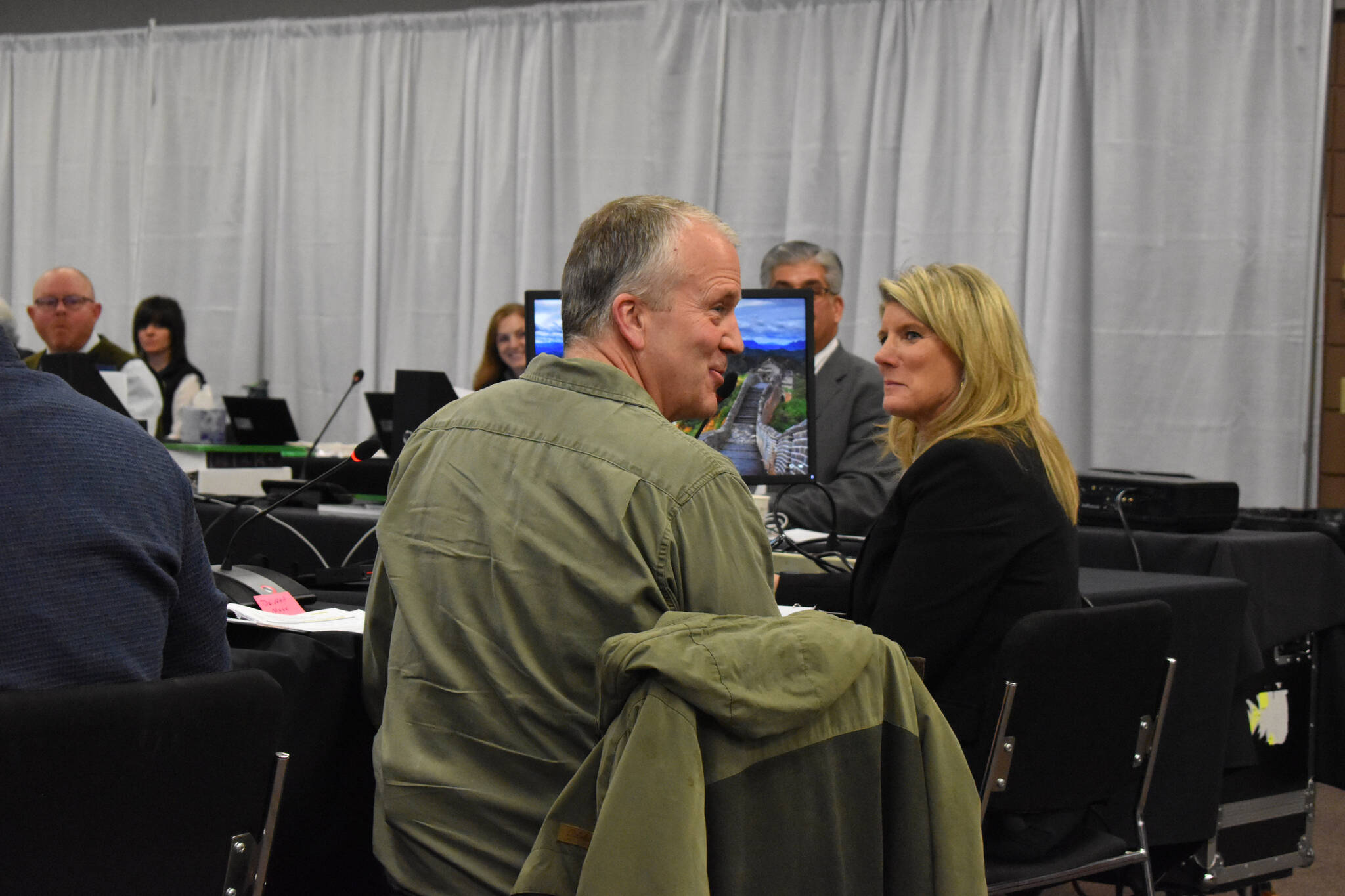The Southcentral meeting of the Board of Game kicked off Friday with the start of public comment on a variety of proposals to the board detailing changes to hunting and trapping regulation.
The Southcentral Region meeting is scheduled to run through Tuesday, according to an agenda posted to the board’s website. It is being held at the Soldotna Regional Sports Complex starting at 8:30 a.m. on Friday, Saturday, Monday and Tuesday, and at 9 a.m. on Sunday.
Public testimony on the proposals being considered will be accepted through Saturday. The agenda says that public testimony will continue until all who sign up to speak by a 10 a.m. Saturday deadline are heard.
Around 150 proposals are up for consideration. Of those, five affect the entire region, while the others are grouped into different areas. For the Kenai Peninsula, which includes hunting Units 7 and 15, 67 proposals are up for consideration.
The majority of the public comment on Friday surrounded two series of proposals that would require trapping setbacks of up to 100 yards on various trails in Cooper Landing and Kachemak Bay. Some of those testifying said they had been working on the issue for more than 20 years.
Support for the setbacks was voiced by Sid Wolford, who identified himself as a recreational trapper and a 50-year resident of Homer. He said that he was ready to make concessions and collaborate with those who have concerns about trapping.
“I’d rather trap than do anything in the outdoors,” he said. “I’m ready to try and meet in the middle.”
The 100-yard setbacks, which were described in opposing public comment by the Kenai/Soldotna Fish and Game Advisory Committee as failing to actually solve the problem, would eliminate “gray area,” Wolford said.
If the setbacks were implemented, he said he would know exactly where he was supposed to be, and the responsibility to avoid his traps would be squarely on the recreational users.
Several Cooper Landing residents, including Sylve Montalgo and Amy Broderson, also spoke in favor of the setbacks.
Montalgo said Cooper Landing used to be a more remote area, and that now its trails are used by far more recreational users than there historically have been. She described the Quartz Creek Campground as a developing area now being groomed for winter skiing and ice skating. Some users in the area, she said, don’t even realize trapping is going on.
“Compromise is what we’re asking for,” she said.
Broderson said that when she was growing up she was educated about trapping, that she knew what traps look like and how to free an accidentally caught animal. She said that contemporary folks lack that education.
Establishing setbacks on “well-used” trails and increasing signage and education would solve the problems, she said, though when questioned by the board she couldn’t define “well-used.” She likened it to existing distinctions between trails that are for skiing or for multi-use.
“I do not want to harm a person’s lawful form of recreation,” she said.
Opposing the setbacks on Friday was Randy Zarnke, president of the Alaska Trappers Association, who said that the setbacks, and other proposed solutions, are “one-sided” and only ask trappers to give things up.
Zarnke said that for some time he has been collaborating with the Alaska Wildlife Alliance, that though they don’t see eye-to-eye on the issue, they can each make concessions.
Together, they designed a sign with information advising trappers to avoid high population areas and dog owners to be aware of traps and maintain control of their pets, he said. Since they’ve been implemented in some areas, no accidental trappings have occurred on those trails, he said.
“Our progress isn’t as good as either of us would hope,” he said, but pledged to continue working to allay concerns on both sides of the issue.
Zarnke asked the board not to approve the setbacks, to give the joint effort more time to find other solutions.
Other issues that received public comment during Friday’s meeting included a series of proposals restricting duck hunting around Homer and two series of proposals that would create archery-only hunts for sheep
Thomas Rothe, who said he had worked in the state as a professional waterfowl biologist for around 25 years, said that the proposed duck restrictions, which would reduce bag limits for several species of duck, are the result of manufactured narratives by some Homer residents who dislike duck hunting.
“There is no biological concern,” he said. “Just a conflict between users.”
Opposition to the archery hunts was expressed by Steve Vanek, of Ninilchik. He said that he opposed the implementation of any kind of special season, saying that hunters who want to use something other than a rifle can do it in the normal season.
“Special seasons elevate people above other people,” he said. “This is not the American way.”
Public testimony was interrupted briefly around 3 p.m. for an appearance by U.S. Sen. Dan Sullivan. Sullivan asked for the board’s input as he engages in negotiations around the Recovering America’s Wildlife Act and described his efforts in relation to the Willow project and Alaska’s right to manage its own fish and game.
For more information about the Board of Game, including the proposals being considered and public comment, visit boardofgame.adfg.alaska.gov. A full recording of Friday’s meeting can be found on YouTube at “Alaska Board of Game.”
Reach reporter Jake Dye at jacob.dye@peninsulaclarion.com.

